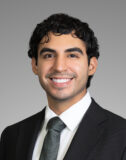
Undue influence is the improper use of power or trust in a way that deprives a person of his or her free will and substitutes another’s in its place. Undue influence can occur during the formation and execution of what can be characterized as “estate planning.” Undue influence often arises in the context of wills, but it can also occur in almost any type of transaction intended to take effect during life or upon death, including: deeds, contracts, the creation of trusts, beneficiary designations for all types of accounts, life insurance and retirement assets, powers of attorney, and the creation of joint, right of survivorship, or pay on death accounts. Regardless of the type of transaction involved, undue influence results in the execution of an instrument that represents the desires and motivations of someone other than the person executing it. A finding of undue influence by a jury or judge results in the challenged document being set aside as void.
Undue influence does not need to be accomplished by physical force. It is more often exercised by subtle and devious means, such as deception or misrepresentations, which may occur consistently over a long period of time or briefly and immediately prior to the execution of the instrument in question. False representations meant to induce someone to do something to his/her financial disadvantage may also form the basis of claims that influence has been improperly imposed.un
Texas courts have recognized and consider the following non-exclusive list of factors evidencing the existence of undue influence:
(i) the circumstances surrounding execution of the instrument;
(ii) the relationship between the person executing the instrument and others who might be expected recipients of the person’s assets;
(iii) the motive, character, and conduct of the persons benefitted by the instrument;
(iv) the participation by the alleged influencer in the preparation or execution of the instrument;
(v) the words and acts of the parties;
(vi) prior actions and stated desires and intentions of the person executing the instrument, contradictory to the instrument at issue;
(vii) the interest in the opportunity for the exercise of undue influence;
(viii) whether the person executing the instrument has habitually been susceptible to the control or influence of others;
(ix) the physical and mental condition of the person upon whom influence is exerted, at the time of the instrument’s execution, including the extent to which he was dependent upon and subject to the control of the influencer;
(x) whether the person executing the instrument had ingested alcohol, drugs or other substances prior to executing the document; and
(xi) the improvidence of the transaction by reason of unjust, unreasonable, or unnatural disposition of the property.
















